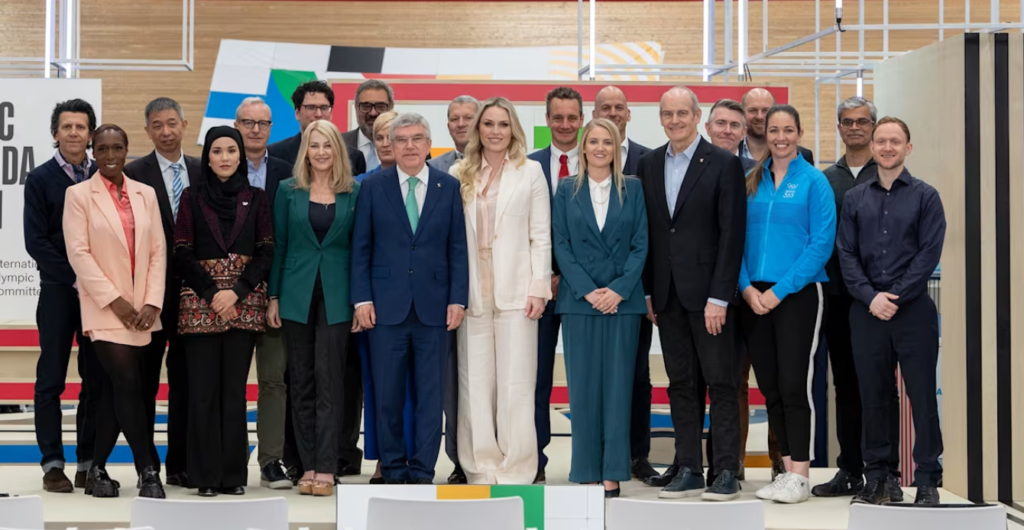IOC unveils the Olympic AI Agenda
April 22, 2024
The International Olympic Committee (IOC) has launched the Olympic AI Agenda. The initiative was introduced during an interactive event held at Lee Valley VeloPark at Queen Elizabeth Olympic Park, home of the Olympic and Paralympic Games London 2012.
Introducing the topic to a global online audience and more than 100 journalists on site, President Bach explained: “When we launched Olympic Agenda, our comprehensive reform programme, in 2014, we did so under the slogan ‘change or be changed’– for some of you here in Great Britain this may sound familiar, it’s about ‘To be, or not to be? That is the question”. Today we are making another step to ensure the uniqueness of the Olympic Games and the relevance of sport, and to do this, we have to be leaders of change, and not the object of change. Today, with the ever-accelerating development of digital technology, and in particular AI, we are again at such a crossroads. From our Olympic Agenda, we know that you can only be the leader of change if you take a holistic approach. While we have already seen some stand-alone AI initiatives in some specific areas of sport, there has not yet been an overall strategy for AI and sport. This is why, today, we are presenting this first holistic approach: our Olympic AI Agenda.”
The IOC President continued: “At the centre of the Olympic AI Agenda are human beings. This means: the athletes. Because the athletes are the heart of the Olympic Movement. Unlike other sectors of society, we in sport are not confronted with the existential question of whether AI will replace human beings. In sport, the performances will always have to be delivered by the athletes. The 100 metres will always have to be run by an athlete – a human being. Therefore, we can concentrate on the potential of AI to support the athletes.
“AI can help to identify athletes and talent in every corner of the world. AI can provide more athletes with access to personalised training methods, superior sports equipment and more individualised programmes to stay fit and healthy. Beyond sporting performance, AI can revolutionise judging and refereeing, thereby strengthening fairness in sport. AI can improve safeguarding in sport. AI will make organising sporting events extremely efficient, transform sports broadcasting and make the spectator experience much more individualised and immersive.



